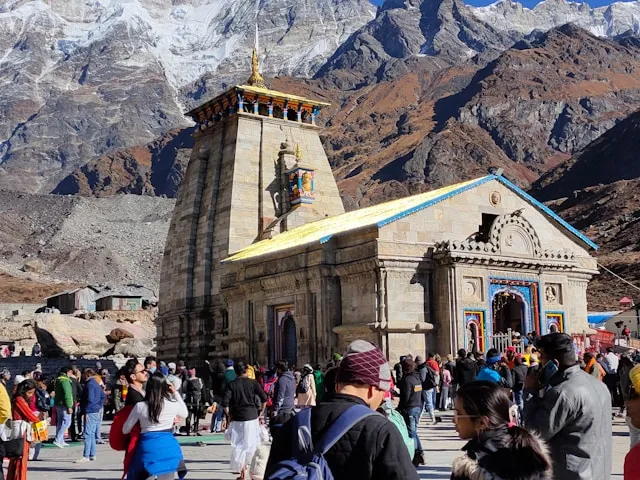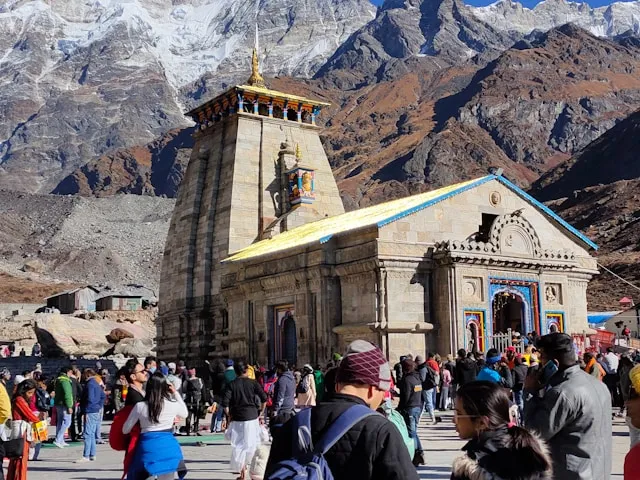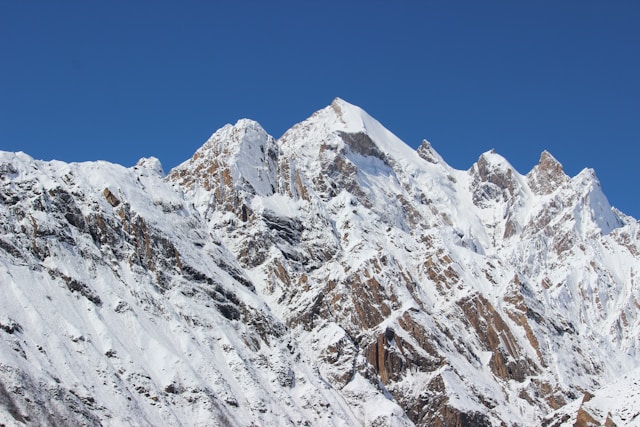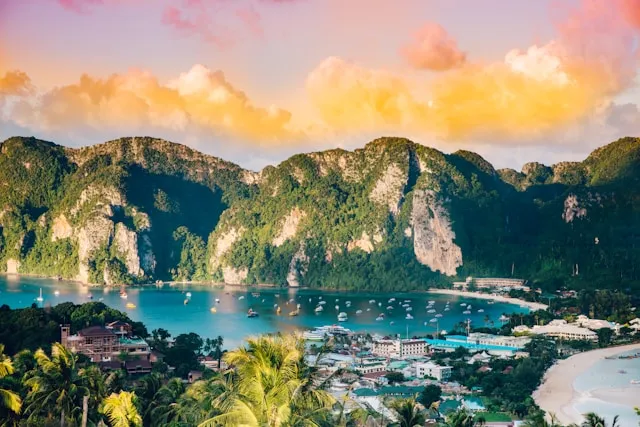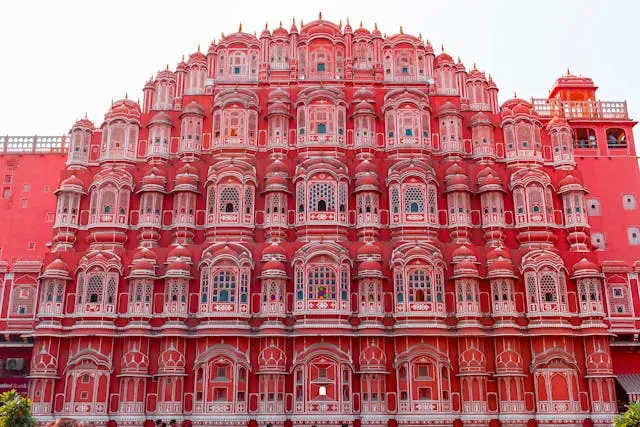Kerala Travel Guide
Kerala
About Kerala Travel Guide
Destination Overview – Kerala
Kerala, often called "God’s Own Country", is a tropical paradise in South India known for its lush greenery, serene backwaters, spice plantations, tea gardens, and cultural richness. With a unique mix of Ayurveda, classical arts, wildlife sanctuaries, and houseboat experiences, Kerala offers a soulful escape for travelers.
Top Attractions & Places to Visit
Backwaters & Beaches:
Alleppey (Alappuzha): Iconic backwater cruises on traditional houseboats
Kumarakom: Scenic backwaters, bird sanctuary, and lakeside resorts
Varkala Beach: Cliffs, clean shoreline, and laid-back cafes
Kovalam: Crescent-shaped beach ideal for sunbathing and water sports
Marari Beach: Quiet, uncrowded beach known for relaxation
Hill Stations & Nature:
Munnar: Rolling tea gardens, Eravikulam National Park, and Anamudi Peak
Wayanad: Forests, waterfalls, and tribal culture
Thekkady: Periyar Wildlife Sanctuary and spice plantations
Idukki: Dense forests, dams, and wildlife
Ponmudi: Lesser-known, misty hill station near Trivandrum
Spiritual & Cultural Sites:
Sabarimala Temple: One of the largest pilgrimage sites in India
Guruvayur Temple: Ancient Krishna temple with deep spiritual significance
Padmanabhaswamy Temple (Thiruvananthapuram): Famous for its wealth and architecture
Chottanikkara Temple: Popular Durga temple near Kochi
Jewish Synagogue & St. Francis Church (Fort Kochi): Colonial spiritual heritage
Cities & Urban Attractions:
Kochi: Fort Kochi, Chinese fishing nets, Mattancherry Palace
Trivandrum (Thiruvananthapuram): Temples, museums, and cultural centers
Thrissur: Cultural capital, Pooram festival, and temples
Calicut (Kozhikode): Historical port city, beaches, and Malabar cuisine
Best Time to Visit
October to March: Ideal weather for exploring all regions
June to September (Monsoon): Great for Ayurveda treatments and lush landscapes
April to May: Hot but good for hill stations like Munnar and Wayanad
How to Reach
By Air: Kochi, Trivandrum, Calicut, Kannur international airports
By Rail: Extensive railway network connecting all major cities
By Road: Excellent road connectivity via NH-66 and NH-544, plus KSRTC buses
Accessibility for Differently-Abled Travelers
Kochi and Trivandrum airports offer wheelchair assistance
Some houseboats and eco-resorts are now wheelchair-friendly
Temples may have steps—check ahead for ramp facilities
Things to Do & Experiences
Stay on a houseboat in Alleppey
Watch a Kathakali or Kalaripayattu performance
Tea tasting in Munnar's estates
Ayurvedic massage therapy and wellness retreats
Trek to Chembra Peak or Meesapulimala
Explore Fort Kochi's colonial lanes and cafes
Visit spice plantations in Thekkady
Witness the Thrissur Pooram or Onam celebrations
Accommodation Options
Luxury:
Brunton Boatyard (Kochi)
Kumarakom Lake Resort
Taj Green Cove (Kovalam)
The Leela Kovalam
Mid-Range:
Abad Group Hotels
Tea County Munnar
Cardamom County Thekkady
Backwater Ripples Alleppey
Budget:
Zostel (Varkala, Wayanad)
Yatri Nivas & KTDC properties
Homestays and eco-resorts in plantations and coastal towns
Local Cuisine & Dining
Must-Try Dishes:
Appam with stew
Kerala Sadya (banana leaf meal)
Fish curry with tapioca
Malabar parotta with beef fry
Puttu and kadala curry
Nadan kozhi curry (local chicken curry)
Popular Sweets:
Palada Payasam
Unniyappam
Banana chips
Ela Ada
Recommended Restaurants:
Ginger House (Kochi)
Paragon (Calicut, Kochi)
Bait Seafood (Kovalam)
Indian Coffee House (Trivandrum, Kochi, Wayanad)
Travel Tips & Safety
Pre-book houseboats and Ayurveda sessions during peak season
Drink bottled water; avoid tap water
Use sunscreen and mosquito repellent near backwaters
Wear modest attire when visiting temples
Respect local customs—especially during religious rituals
Weather & Packing Suggestions
Summer: Cotton clothes, caps, water bottles
Monsoon: Quick-dry clothes, umbrellas, raincoat
Winter: Light jackets for hill stations
Footwear: Easy-slip footwear for boats and temples, hiking shoes for treks
Currency & Connectivity
Currency: Indian Rupee (₹)
ATMs widely available in cities and towns
Good 4G coverage in most regions; limited in deep forests
Wi-Fi in hotels, cafes, and homestays
Suggested Itinerary (7D/6N Kerala Highlights Tour)
Day 1: Arrive in Kochi → Fort Kochi sightseeing → Kathakali show
Day 2: Drive to Munnar → Tea garden visit → Tea Museum
Day 3: Munnar sightseeing → Eravikulam National Park → Mattupetty Dam
Day 4: Thekkady → Periyar Lake boat safari → Spice plantation walk
Day 5: Alleppey → Check into houseboat → Backwater cruise
Day 6: Kumarakom → Bird sanctuary → Ayurvedic spa
Day 7: Return to Kochi or Trivandrum → Departure
Shopping & Souvenirs
Spices (cardamom, pepper, cinnamon)
Ayurvedic oils and products
Kasavu sarees
Coir products, mats, and rugs
Handmade soap, coconut shell artifacts
Banana chips and jackfruit chips
Cultural & Historical Background
Kerala has a rich history influenced by traders, Portuguese, Dutch, Arabs, and British. The state is renowned for its classical dance (Kathakali), martial art (Kalaripayattu), Sanskrit theatre (Koodiyattam), and festivals like Onam and Vishu. Its matrilineal traditions, religious harmony, and high literacy make Kerala culturally unique.
Local Transport Options
KSRTC Buses: Inter-city and rural access
Auto-rickshaws & taxis: Available in all towns
Houseboats and ferries: In backwater areas
App-based cabs: Uber, Ola in Kochi, Trivandrum
Scooter rentals: Common in Varkala and Fort Kochi
Nearest Major Railway Stations
Ernakulam Junction (Kochi)
Trivandrum Central
Kollam
Kozhikode (Calicut)
Alleppey (Alappuzha)
Thrissur
User Reviews & Testimonials
"The backwaters of Alleppey were the most peaceful experience of our lives." – Aarti & Ramesh
"Loved every second in Munnar’s tea gardens. So refreshing." – Vivek
"Our Ayurvedic spa in Kumarakom was rejuvenating and professional." – Priyanka Jain
"Kerala’s food, culture, and scenery are unmatched." – Danish K.
FAQs About Kerala Tourism
Is Kerala good for honeymooners?
Absolutely. Munnar, Alleppey, and Kumarakom are romantic getaways.
Can I book houseboats online?
Yes, via platforms like Kerala Tourism, Airbnb, or local travel operators.
Is Kerala vegetarian-friendly?
Yes. Sadya meals and most restaurants offer plenty of veg options.
What’s the best souvenir from Kerala?
Spices, Ayurvedic oils, and coir crafts are very popular.
Sustainability & Responsible Tourism
Prefer eco-friendly houseboats and solar-powered resorts
Avoid plastic bottles and use reusable bags
Do not litter in forests, beaches, or backwaters
Support local guides, artisans, and spice farmers
Respect local culture, temples, and attire codes
Need a Kerala Travel Guide Customized Itinerary?
Let us create your perfect Kerala Travel Guide journey

Gallery

Weather
Location Map
Kerala
Latest Blog Posts
Latest News: Kerala | Kerala Travel Guide 2025–2026 | Backwaters, Beaches & Hill Stations
What Our Travelers Say
Real experiences from our valued customers
"The Somnath Darshan trip was incredible! Great accommodations, fantastic guides, and an overall peaceful experience."
Arun Mehta (Gurgaon, India)
"The spiritual energy in Rishikesh was incredible. The entire trip was perfectly arranged—couldn’t have asked for more."
Emily Thompson (New York, USA)
"The trip to Haridwar and Rishikesh was spiritual and well-managed. Truly a memorable and fulfilling experience."
Daniel Young (Rome, Italy)
"Thailand was a perfect mix of adventure and relaxation. We loved the island tours and the food was spectacular. The travel arrangements made everything so easy!"
Kiran Reddy (Hyderabad, India)
"The Tirupati Balaji pilgrimage was smooth and fulfilling. A perfect balance of faith and comfort. Highly recommended."
Rajeev Kumar (Patna, India)
"he Shirdi Sai Baba trip was absolutely wonderful! A great way to connect spiritually, and the logistics were flawless."

